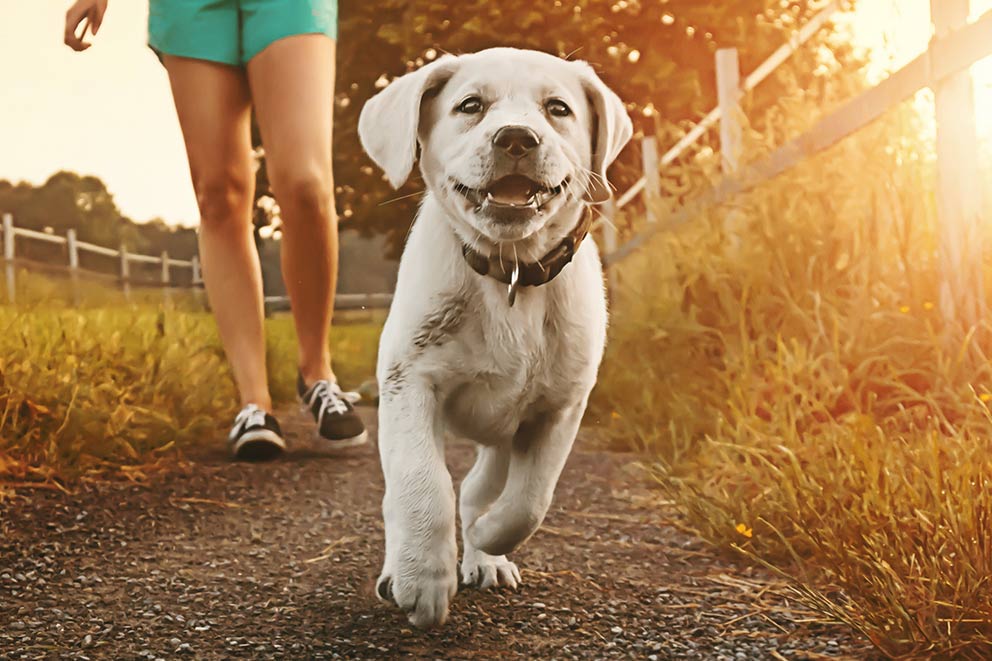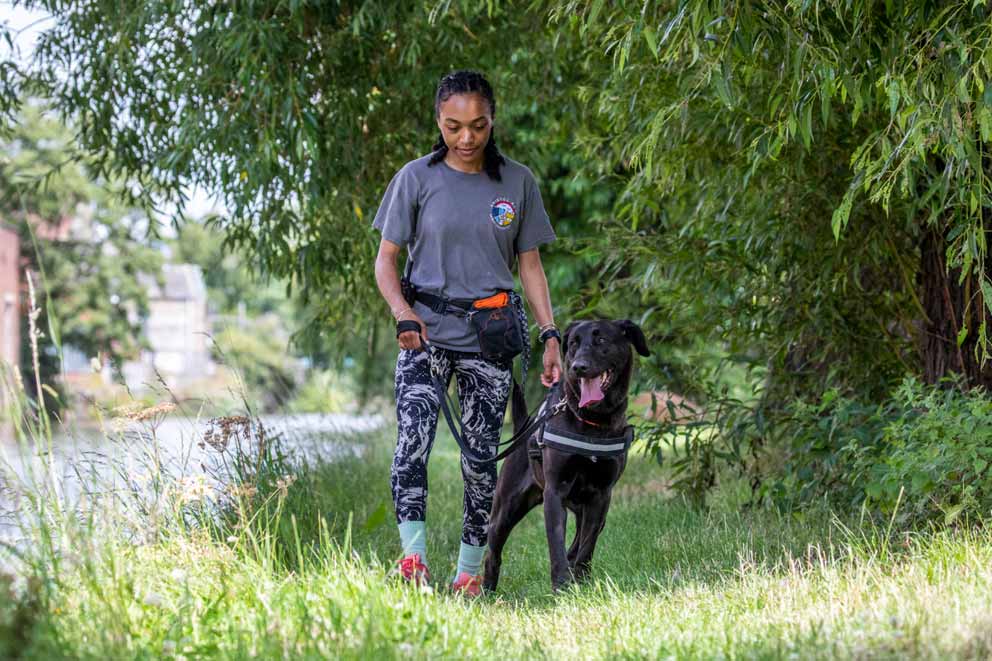- Find a Pet
- Advice and Welfare
- Ways to Give
- Get Involved
- What We Do
- Search
- My RSPCA
- Report a concern
- Gift in Wills
-
Colour modeVivid Calm
- Home
- Advice and welfare
- Pets
- Dogs
- Health and welfare
- Dogs on hot walks
Dogs die on hot walks
Dogs are 10 times more likely to suffer heat-related illnesses from exercising in hot weather than from overheating in cars. Learn how to keep dogs safe and help us raise awareness of this deadly problem.

When dogs get hot, they can cool down by panting, drinking more, seeking out shade or jumping into water. But if they can’t do these things, or if it’s too hot, their body temperature can spike and lead to heat-related illnesses and even death.
Which dogs are most at risk of overheating?
Dogs with existing health conditions, flat-faced breeds and those with thick coats are more at risk of overheating and could even struggle in relatively cool spring weather after a cold winter:
- Dogs with health conditions: As dogs rely on their respiratory system to keep cool, unfit and overweight dogs and those with heart or respiratory disease are more likely to heat up faster and take longer to cool down.
- Flat-faced breeds: A study by Nottingham Trent University and the Royal Veterinary College found that brachycephalic dogs such as pugs and bulldogs are at higher risk of developing heatstroke, as panting is less effective with a shorter snout.
- Dogs with thick coats: Dogs lose heat through their bodies, which is harder if they have thick coats or are wearing doggy clothes.

Dogs should have regular exercise and involving them in your outings and family fun is expected, but if the weather is warm, it can be too much for our dogs
Join our life-saving ‘Cool Dog Summer’ workshop
Learn how to keep your dog safe during the summer heat. Discover how to spot signs of heatstroke, provide proper shade and hydration, and more. Help us protect dogs and prevent heat-related emergencies.
- Dates: 17 April, 15 May, 19 June, 17 July, or 7 August
- Time: 1–2 pm
Want to attend? Email campaigns@rspca.org.uk with your preferred date to book your place and receive full details about the workshop.
How to prevent dogs from overheating
Take these simple steps to keep your dog cool on hot days and help us raise awareness to save the lives of dogs who give us so much.
Prepare
Before going out for the day, check that you’ll be able to provide:
- Shade: If you’re taking your dog to an outdoor event, do your research to make sure that dogs are allowed and that you’ll be able to keep them cool in shady spots.
- Water: Pack a portable water dispenser and offer your dog small amounts of water every 15-20 minutes. Don’t let them drink water while they’re panting heavily, as this can cause bloating and vomiting.
- Cool ground to walk on: For example, grass. Before walking your dog on a hard surface, such as the pavement, check the ground temperature with the back of your hand to avoid burned paws.
Watch
Keep a close eye on your dog and look out for the following signs of them overheating and suffering from heatstroke:
- Heavy panting and difficulty breathing
- Excessively drooling
- Lethargic, drowsy or uncoordinated
- Collapsed or vomiting
Act quickly
If your dog is suffering in the heat:
- Stop moving, give them water and find shade.
- Keep an eye on them until they're recovered
- If they get worse, follow our emergency first aid advice at once.
Report a concern
See a dog in a hot car displaying any signs of heatstroke? Dial 999 immediately and stay with the dog to monitor their condition until help arrives.



